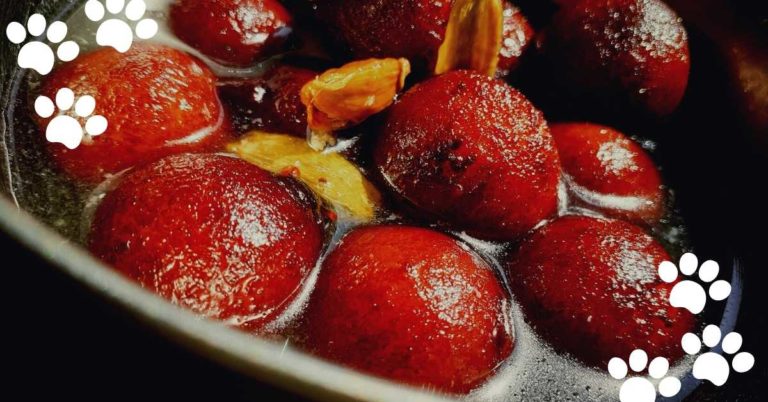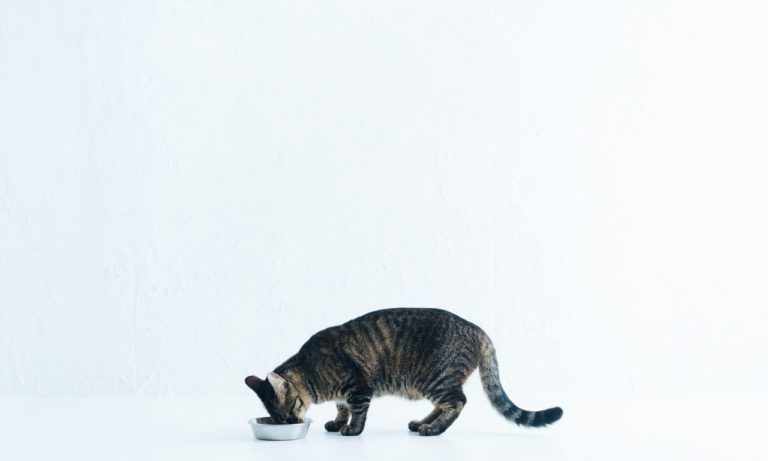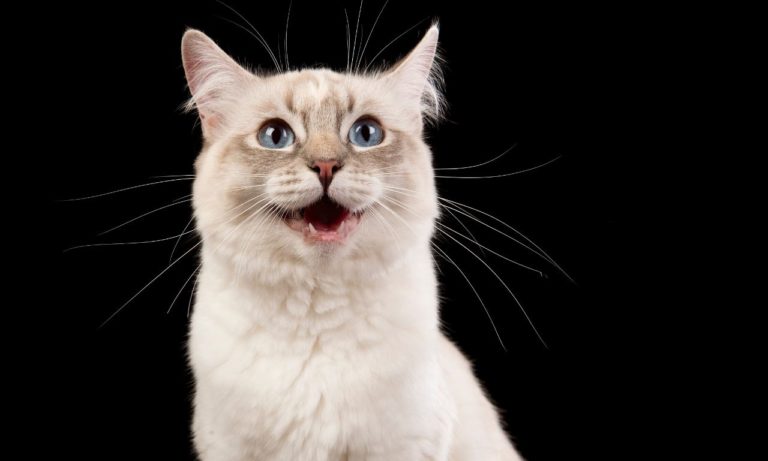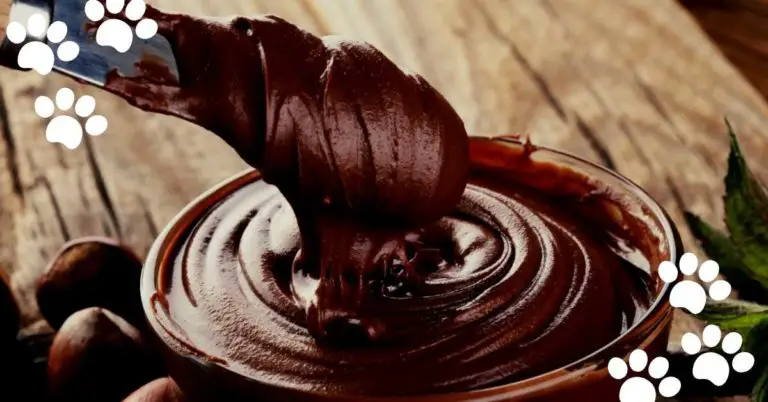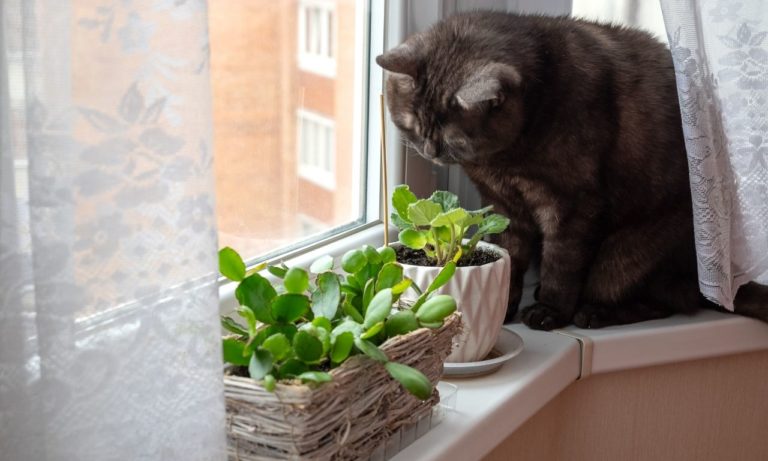Can Cats Eat Bananas? A Guide for Pet Owners
Cats are naturally curious eaters, and as pet owners, we often find ourselves asking, “Can cats eat bananas?” In the adventure of satisfying our feline friends’ curiosity, we are compelled to explore the dietary curiosities and health implications that come with feeding our cats human foods, such as bananas. This comprehensive guide is not only an answer to your feline-related queries but also a deep-dive into the overall nutritional understanding of your beloved pet’s diet.
The Curiosity of Cats and A Balanced Diet
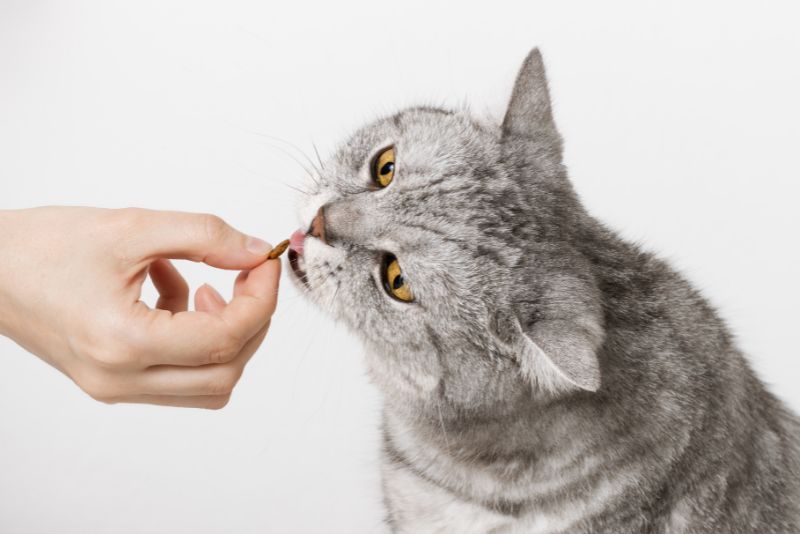
The mesmerizing sleekness and agility of cats, combined with their whisking tails and inquisitive noses, form the very fabric of their engaging personalities. Their curiosity extends well into the realm of food, where a balanced diet is essential to support this mischievous behavior. What does balanced mean, though, when it comes to a feline’s nutritional needs?
The Feline Formula
A cat’s love for exploration doesn’t wane when it comes to mealtime. They are obligate carnivores, meaning they must eat meat to meet their nutritional need for specific nutrients, such as taurine and arachidonic acid, which are only found in animal tissue. These key components are vital for maintaining good vision, heart function, and reproductive health in cats.
The protein that meat offers helps build and maintain the tissues in their lithe bodies. However, vitamins, minerals, and other macronutrients are not to be overlooked. This intricate dietary web includes carbohydrates, which cats can technically digest, though they are not essential as they are for omnivores like humans.
Can Cats Eat Bananas?
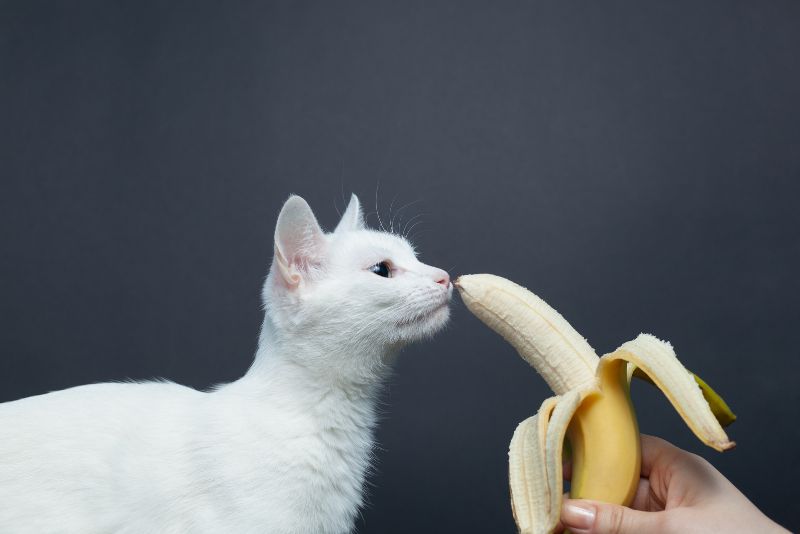
Before you decide to tempt your cat with a slice of banana, consider the dietary safe zone you’d be leading them into.
Going Bananas for Bananas
Bananas are a great source of essential vitamins and minerals for humans and are often touted as a nutritious snack. They offer potassium, vitamin C, B6, and fiber, amongst other beneficial compounds. However, when it comes to cats, the story is slightly different.
The Feline and The Fruit
In small amounts, bananas are not toxic to cats. However, cats cannot derive the same nutritional benefits from bananas as humans. Due to the high sugar content, it’s best to offer a tiny sliver of banana as an occasional treat. Cats have little to no taste receptors for sweetness, so the appeal could be the texture or the bond formed through food sharing.
The fiber in bananas can have benefits for a cat’s digestive system, but as obligate carnivores, cats typically get the fiber they need from the fur and feathers of their prey. Thus, bananas should remain a rarity in your cat’s diet.
Exploring Variants: Banana-Based Human Foods
The world of banana creations is vast and varied, and so we must investigate each banana-based human food with the same scrutiny applied to the humble fruit.
Banana Chips
Banana chips, while delicious for humans, are not a good idea for cats. The same high sugar content found in fresh bananas is present, and the added elements used during the drying process, such as salt and oil, can be harmful to your cat’s sensitive digestive system.
Banana Bread
The ingredients in banana bread – like sugar, butter, and flour – do not align with a cat’s natural dietary requirements. The baked good is high in calories and can lead to obesity or digestive issues in felines. It’s best to keep banana bread as a human treat.
Banana Pudding
Banana pudding is no better for cats than banana bread, perhaps even worse due to the complexity of its ingredients. High levels of sugar and fats can lead to health issues in the long run if consumed regularly or in large quantities.
Banana Pancakes and Muffins
Pancakes and muffins, despite the often healthy connotations, are still high in sugars and fats. The derivatives of bananas in these delicacies do not provide enough nutritional value for cats to warrant the risk of consumption.
For more information about understanding the basics of a healthy feline diet and what other human foods might be safe for cats, refer to our sections on Feline Dietary Needs and Safe Human Foods for Cats further down in this document.
Understanding Cat Nutrition
Your cat’s nutrition can be broken down into the building blocks that sustain their principled, yet playful natures.
Fats and Proteins
Essential fatty acids play a significant role in a cat’s skin, coat, joint health, and brain function. Proteins are the foundation of tissue and play roles in various bodily functions like enzymes and antibodies production.
Vitamins and Minerals
Vitamins and minerals serve as cofactors for enzymatic function in a cat’s body. They are essential for the maintenance of their immune system, and bones, and participation in cellular processes.
Water and Hydration
Cats are notorious for their disdain for still water. However, adequate hydration is vital for their urinary tract health. Wet-food options and clean water sources should be easily accessible.
Fiber and Digestion
Fiber helps regulate the transit of food through a cat’s digestive system. While essential for the overall health of the gut, too much can lead to issues like diarrhea or even malnourishment in cats.
Conclusion
Offering felines the most healthful scenarios sometimes means resisting the urge to see what will happen when they taste the food that has you going bananas. Staying informed about their nutritional needs will ensure the best ideas you have for them will also be the safest and most beneficial.
Responsible pet ownership includes a commitment to learning and understanding what makes a healthy diet for your pet, which ultimately contributes to a longer, happier cat life.

